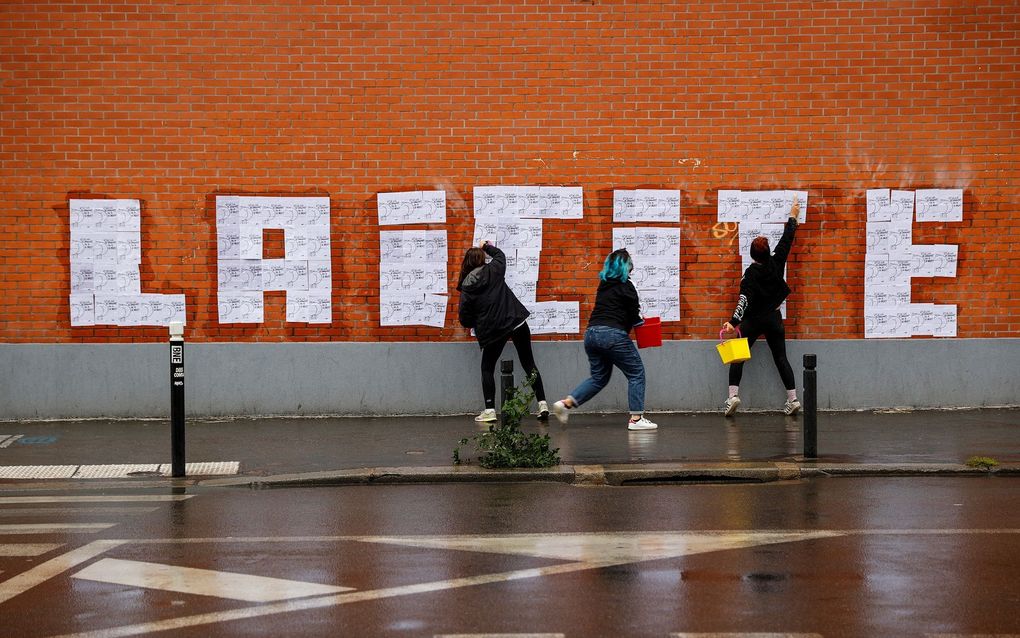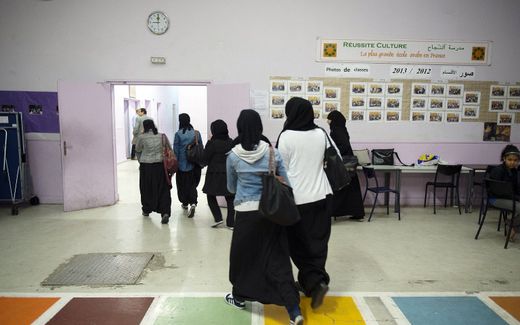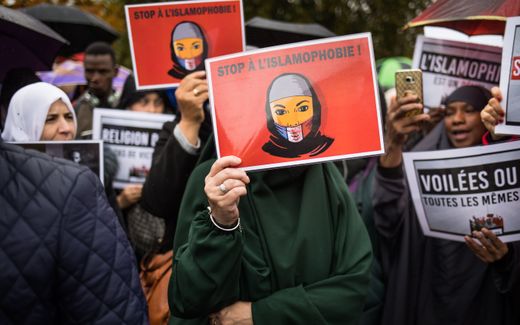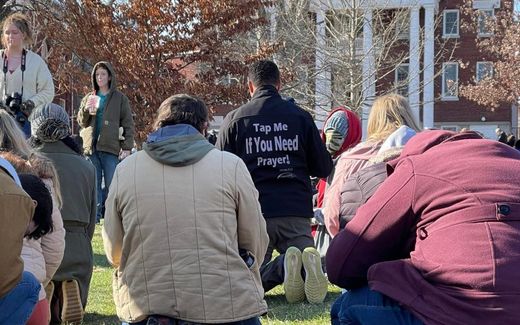Young French want more but different secularism

Three feminist activists placard posters of a drawing by French cartoonist Charb to read " Laicite " in Montreuil, on October 20, 2020. Photo AFP
Western Europe
What do young people in France believe? That was the question of a survey which was presented on Wednesday.
Among French people between 18 and 30, the number of Muslims and Christians is almost equal, the outcome of the research of the Kantar Institute shows, according to La Croix. Philippe Portier and Charles Mercier, experts in the sociology of religions and secularism, led the study.
Of the 1000 respondents, 22 per cent indicated they were Christian, while 12 per cent said they were Muslim. In 2018, another study showed that 15 per cent of 18-29-year-olds said they were Catholic, and 13 per cent said to belong to the Islamic religion.
Value
More than half of the respondents (52 per cent) say they do not belong to any religion at all. This is fewer than in 2018 when another survey showed that this group made up 58 per cent of the total number of participants.
Another remarkable conclusion of the survey is that young people seem to value religion less and less. Overall, they see the diminishing position of religion in society as a good thing, researcher Charles Mercier explained.
However, the large minority of those who do consider themselves religious has an increasingly intensifying relationship with their religion, Mercier notes. In total, 43 per cent of the respondents say to believe in God. However, the research also shows that they are less affiliated with an institutional religion than people in previous years.
Separation
Nevertheless, overall, young people seem to be more inclusive than their elders when it comes to religious symbols in public, La Croix analysed earlier. At the same time, they propagate an even stricter separation between the state and religions.
Young people see this separation as necessary for them to express themselves as they want, researcher Philippe Portier explains. “Everyone must be able to do what they want as long as they respect the freedom of others. Wearing a headscarf or choosing your menu in the school restaurant does not necessarily imply a crisis of social bonds”, he says.
Related Articles









